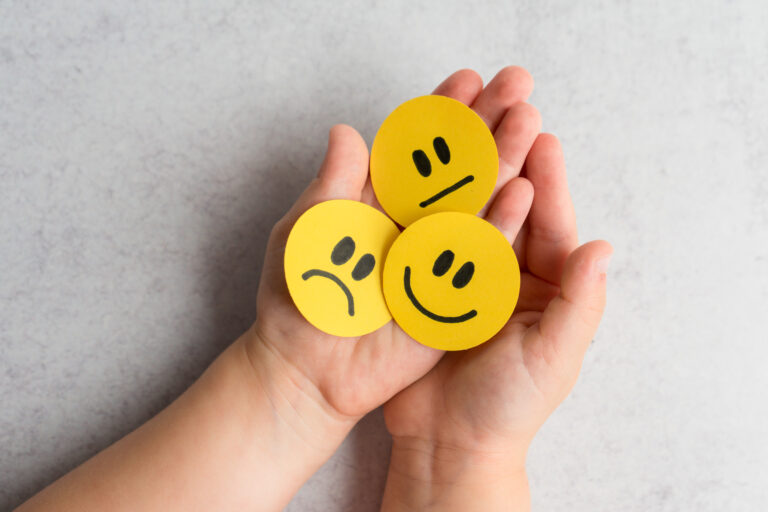Ever experienced being governed by your emotions?
Perhaps you become unreasonably irritable when hungry, or your patience dissipates when feeling lonely. If you want to understand these connections and manage your emotional state, it’s essential to be acquainted with the concept of HALT. I have personally used this method for decades, and it has served me well.
So, what exactly is HALT, and how can it aid in navigating the intricacies of human emotions? This piece will delve into the significance of this impactful acronym and offer useful advice for incorporating it into your daily life.
How Does the HALT Acronym Work?
HALT stands for Hungry, Angry, Lonely, or Tired—a simple but powerful tool to identify potential risk factors for unhealthy coping mechanisms and emotional responses. The idea is that when you’re experiencing any of these states, your judgment can be clouded, making you more likely to make impulsive decisions that you may regret later.
- Hungry
We become irritable, frustrated, and have difficulty concentrating when our blood sugar drops. Imagine struggling with a complex work task with many moving parts. As your stomach growls, you realize you haven’t eaten lunch, which only adds to your stress. By recognizing hunger as a potential factor, you can grab a quick snack to ease your mind.
- Angry
Anger clouds our judgment and can be triggered by unmet needs or frustrations. For example, being stuck in traffic and running late for an appointment would make anyone feel angry. Taking deep breaths or practicing grounding exercises can help you stay calm and avoid making rash decisions.
- Lonely
Loneliness can contribute to anxiety, depression, and a craving for connection, sometimes leading to unhealthy coping mechanisms. If you’re feeling unmotivated while working on a project alone, reaching out to a family member or friend can help re-energize you and get your creative wheels turning.
- Tired
When we’re exhausted, we’re less likely to make healthy decisions. Fatigue impairs judgment and makes us more vulnerable to emotional triggers. For instance, after a long day of work or school, an argument with a family member can quickly escalate because your patience wears thin. Taking a break before continuing the conversation helps prevent saying something you may regret.
How Does HALT Work?
Often used in clinical settings and for self-management, HALT encourages individuals to pause and reflect on whether they feel hungry, angry, lonely, or tired.
HALT teaches individuals experiencing addictions or self-harm tendencies to become aware of their mental and physical impulses, helping them prevent unhealthy behaviors. For example, someone recovering from addiction might use HALT to recognize hunger as a potential trigger and prepare a healthy snack to avoid cravings.
By pausing and addressing HALT needs, individuals can make more rational decisions instead of giving in to anger, loneliness, or fatigue before making important choices.
Did you know that practicing HALT can improve your productivity at work and school?
Being mindful of your HALT state can significantly impact your performance, allowing you to revitalize focus and de-escalate situations before they disrupt your workflow.
The HALT method also helps recognize early signs of stress before they escalate into more stressful situations. This can be particularly helpful for young children who often find it difficult to communicate their needs. HALT can be a valuable tool for parents and caregivers to understand a child’s behavior and assist them in managing their emotions.
Signs of HALT in children may include:
- Crankiness
- Whining
- Yelling or hitting
- Withdrawing from friends
- Having trouble concentrating
It’s important to meet their needs as soon as possible. For example, if a child seems hungry, offer them a healthy snack or meal. If they’re upset, teach calming techniques like square breathing or the 5-4-3-2-1 grounding exercise.
You can encourage children to learn HALT in fun and engaging ways. Drawing a graph or writing a silly song can help them remember the acronym. A visual or activity-based approach can make the process more enjoyable and accessible for children.
Learning to recognize the signs of HALT is crucial for identifying your underlying needs and taking a break. Regularly checking in with yourself throughout the day can increase your awareness of your thoughts, feelings, and actions.
Some physical signs of HALT include:
- Stomach rumblings
- Fatigue or low energy
- Yawning
- Heavy eyelids
Observe the following emotional signs as well:
- Feeling easily irritated
- A short temper
- Feeling depressed or down
- Withdrawal from family and friends
You can engage in regular mindfulness practices and track your emotions with a mood tracker or journal if you have trouble noticing how you feel.
If you think you’re experiencing a HALT state, here’s what you can do:
- Listen to your body, paying attention to hunger cues and other symptoms of HALT.
- Prepare for a long day by packing healthy snacks or planning meals to avoid blood sugar crashes.
- Sleep well before a big event.
- Take breaks whenever necessary.
- Walk away from the situation to cool down before reacting.
- Take deep breaths or practice relaxation techniques to calm your body and mind.
- Don’t judge yourself for feeling lonely. Go through the motions, validating your feelings and understanding that they are a natural part of life.
- If chronic loneliness or disproportionate reactions are disrupting your daily life, consider talking to a therapist who can help you develop coping mechanisms and strengthen your social connections.
The Key Takeaways Are:
- Symptoms of HALT include hunger, anger, loneliness, and tiredness. These symptoms can exacerbate stress and irrationality. Managing stress, communicating better, and improving productivity can all be enhanced by understanding HALT.
- HALT states can be addressed by being prepared, observing physical signs, and taking breaks whenever necessary.
- It is important to take good care of yourself, which includes emotional, psychological, and physical care. Poor self-care can result in HALT, a syndrome that stands for Hungry, Angry, Lonely, and Tired. Several factors contribute to HALT, including poor eating habits, poor sleep, stress, frustration, and feeling isolated. In order to avoid self-destructive behaviors and develop healthy coping skills, you need to be aware of these early warning signs.




